Society

Anti-austerity protest in Beirut, October 2019 | Courtesy of Stephen McCloskey
Social and economic upheaval in Lebanon in 2020 has deepened and magnified the poverty of Palestinian refugees.
As Lebanon goes for another full lockdown to contain the rapid spread of COVID-19 which has so far resulted in 116,476 cases and 900 deaths, Palestinian refugees are left to ruefully reflect on how they can possibly maintain physical distancing in densely populated and highly impoverished camps. As Philip Alston, the outgoing UN Rapporteur on Extreme Poverty and Human Rights, has suggested, coronavirus' 'wholly disproportionate impact on poor people and marginalised communities is inescapable'. This has particularly been the case for Palestinians living in 12 refugee camps in Lebanon where COVID-19 has deepened and magnified the social and economic malaise that has accompanied 72 years of refugee status. Now, this pandemic of poverty has been exacerbated by the wider social and economic upheaval that has impacted Lebanon itself.
The impact of Syria's war on Lebanon
Over 470,000 Palestinian Refugees Lebanon (PRL) are registered with the United Nations Relief and Works Agency (UNRWA); the UN mission established to provide for the welfare of Palestinian refugees following the ethnic cleansing of Palestine in 1948. In the absence of a census, UNRWA estimates on the basis of take-up of its services, that 180,000 Palestinian refugees are residing in-country. The lack of precision in regard to numbers is in large part owing to the Palestinian Refugees Syria (PRS) who fled to Lebanon after the start of the war in Syria in 2011. Sixty per cent of PRS (262,000) have been displaced at least once by the war, 4,000 have been killed and 50,000 are estimated to have left the country.
An estimated 29,000 of the PRS have taken refuge in the 12 camps in Lebanon which has increased competition for employment and helped to suppress wages. Before the pandemic, the unemployment rate for PRL was 23% and 52% for PRS; these figures are likely to rise owing to the economic contraction that accompanies lockdown.
Palestinians are excluded from 36 occupations in Lebanon (including medicine, farming and fisheries) which confines them to low-paying, low-skilled occupations in the informal sector. 86% of PRL don't have contracts with employers which means they are often 'subject to harsh, exploitive and insecure working conditions'. 53% of PRS are paid on a daily basis and nearly all (97%) have nothing more than verbal agreements with employers.
During periods of lockdown caused by COVID-19, Palestinians are likely to lose their income without any compensation from the state or their employers. To help mitigate the impact of COVID-19 on Palestinian refugees, UNRWA has committed to provide 'one round of cash assistance of US$ 40 per person, covering 50% of the minimum basic food requirements'. However, this is unlikely to represent the kind of sustained support needed to weather the pandemic.
In September 2020, UNRWA launched an emergency COVID-19 funding appeal calling on donors to contribute the $94.6m it estimated as needed to provide healthcare, hospitalisation, education services, food and cash assistance to the 5.6m Palestinians under their care across all their fields of operation, including Lebanon. By 9 November, however, UNRWA's financial crisis had worsened to the point that it appealed for emergency finance of $70m to pay the salaries of its 28,000 employees to the end of 2020. The main source of this funding crisis was the withdrawal of United States (US) support for the agency by the Trump administration in 2018, which amounts to approximately one third of its $1.1bn annual operating budget.
COVID-19 in Palestinian camps
The largest Palestinian refugee camp in Lebanon's capital, Beirut, is Burj Barajneh which according to UNRWA has 19,539 registered refugees. However, this figure almost certainly excludes incoming PRS and other Syrian refugees not registered with UNRWA but are resident in the camp. The area of the camp is one kilometre square and the Lebanese government prohibits the expansion of this area which means the only way to increase capacity is upward.
The camp is a labyrinth of narrow alleyways with low-hanging inter-twining water pipes and electricity cables that have caused more than 50 fatalities, mostly children, from electrocution. The tight alleyways and overhanging buildings mean that large areas of the camp are denied natural light. A combination of poor sanitation, a limited diet, low incomes and inadequate housing contribute to illness and mental health problems. 63% of PRL and 75% of PRS live with a relative with an acute illness in the last six months.
All of these factors could accelerate the spread of COVID-19. Dr Firas Al-Abiad, the General Director of the Rafic Hariri Government Hospital in Beirut, has reportedly found the mortality rate among Palestinians as 'more than double Lebanon's 1% rate'. With camp residents sharing accommodation with at least 5 to 10 other people, physical distancing is well-nigh impossible. This could explain why I saw just a handful of residents in Burj Barajneh and Shatila camps during a visit in October wearing face coverings. There may be a fatalism at work here with the possible calculation that donning a face covering in such a confined, densely populated area may offer limited protection. Other factors that may explain refugees' ignoring coronavirus include: a lack of information about proper procedures in the event of contracting the virus, and a fear of hostility and being scapegoated by host communities if cases are detected. There may also be a natural suspicion among refugees of the validity of public messaging by politicians on coronavirus in a region where misinformation about the virus for political ends has been spreading.
According to an UNRWA source, as of 19 November, there have been a total of 2,695 registered COVID-19 cases among Palestinian refugees in Lebanon since February 2020 with 330 active cases, 52 current hospitalised cases and 89 deaths. A 96-bed quarantine and isolation centre at UNRWA's Training Centre (STC) campus in Siblin, south Lebanon, has been in use since 6 May 2020 and a second 50-bed isolation centre at in Ein El Hilweh refugee camps is ready for use.
UNRWA has committed to 'cover the costs of COVID-19 testing and related hospitalization needs, including intensive care units (ICU)' for Palestinians, expressing confidence that president-elect Joe Biden will restore the funding withdrawn from UNRWA by the Trump administration in 2018. However, on more substantial matters of policy, Biden stated during the recent US election that he would not reverse president Trump's decision to move the US embassy in Israel to Jerusalem or Washington's recognition of Israel's annexation of the Golan Heights. This suggests there may be no significant shift in US Middle-East policy between the Trump and Biden administrations.
Lebanon in crisis
The wider economic context for Palestinian refugees in Lebanon has deteriorated rapidly with a series of crises that have enveloped the country in 2019-20. In October 2019, a wave of anti-austerity protests triggered by a proposed tax on WhatsApp, that was hastily withdrawn, vented deeply felt anger at longstanding graft and corruption overseen by a sectarian political system which ensures that the Lebanese prime minister is a Sunni, the president a Maronite, and the speaker of parliament a Shia.
Two governments have been formed and collapsed over the past year as political machinations by the old order tried to reheat the same political formula that the people had rejected. The economic crisis in Lebanon created by successive administrations and compliant lenders has resulted in a national debt of $93 billion; the highest debt-to-GDP ratio in the world. In March 2020, Lebanon defaulted on a $1.2bn Eurobond, the first sovereign default in the country's history, which sent the currency into freefall. The Lebanese pound, normally pegged to the Dollar at LBP 1,507 was trading at LBP 7,200 in October and had lost 80 per cent of its value.
However, yet another national calamity befell the country on 4 August 2020, when 2,750 tonnes of ammonium nitrate stored in Beirut's port ignited to cause an enormous explosion that resulted in 203 deaths, 6,500 injuries, and made 300,000 people homeless. The cost of the property destroyed by the blast is calculated at US$15 billion and this latest national trauma reignited public anger and protests as it emerged that the chemical had been negligently stored in a warehouse in the port for six years.
This appeared to be more evidence of government neglect and evasion as calls for an independent enquiry were swatted away. UNRWA expressed its 'fears that this latest catastrophe will push vulnerable communities in Lebanon further into despair, including Palestinian refugees, who are already amongst the most marginalized groups in the country'. The devaluation of Lebanon's currency threatens food security as prices will inevitably increase and wages will be worth less. In a lockdown scenario, an already vulnerable community is at severe risk of a loss of income and will be pushed even further to the social and economic margins.
Forgotten refugees
The Palestinians in Lebanon are often described as 'forgotten' refugees', bereft of international support and almost totally dependent on UNRWA, which is itself facing an economic crisis. Their situation could be immeasurably improved if the restrictions impeding their economic status were lifted and they were allowed to work in the formal economy. Enabling Palestinians to become more integrated into the Lebanese economy with labour restrictions removed could benefit wider Lebanese society as well as Palestinians.
Because they are not formally citizens of another state, Palestinian refugees are trapped in a permanent foreigner status in Lebanon, in which they are effectively excluded from most civil and socio-economic rights. In June 2019, the Lebanese Ministry of Labour enforced existing legislation requiring all foreigners, including PRL and PRS, to obtain work permits. According to the UN refugee agency, 'obtaining a work permit reportedly involves a lengthy administrative process, for which the refugees depend on the goodwill of their employers'. Removing this obstacle to employment could markedly improve the employment prospects of Palestinians in a period of severe economic hardship exacerbated by the pandemic.
From openDemocracy







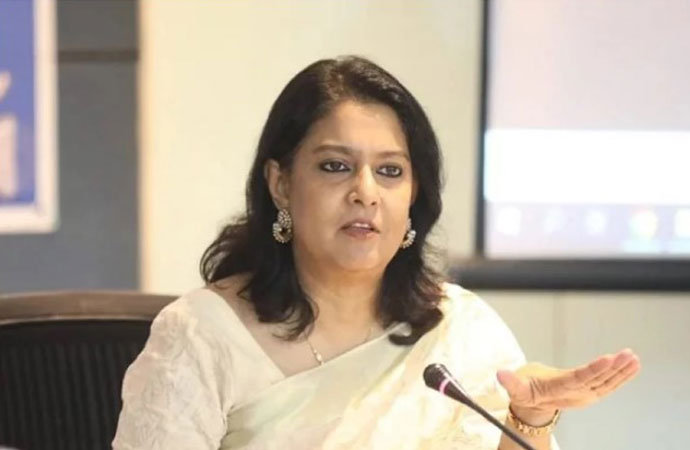

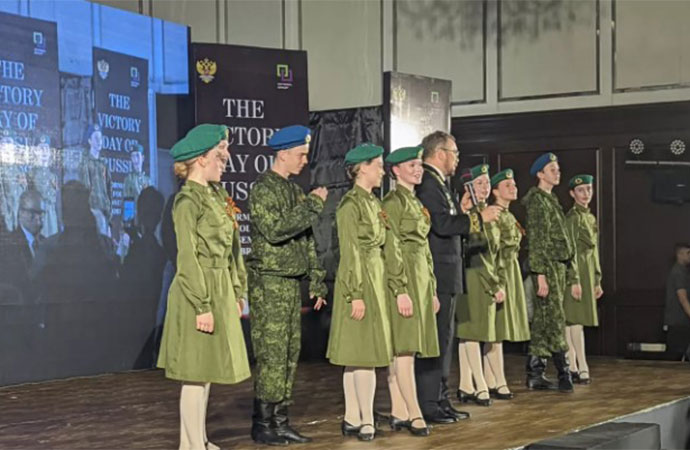









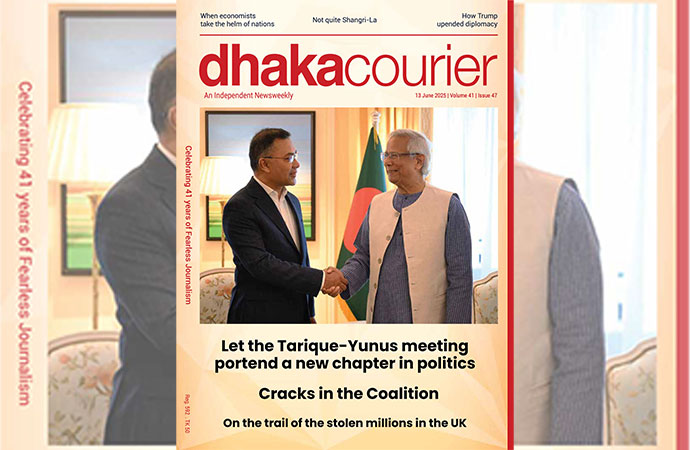
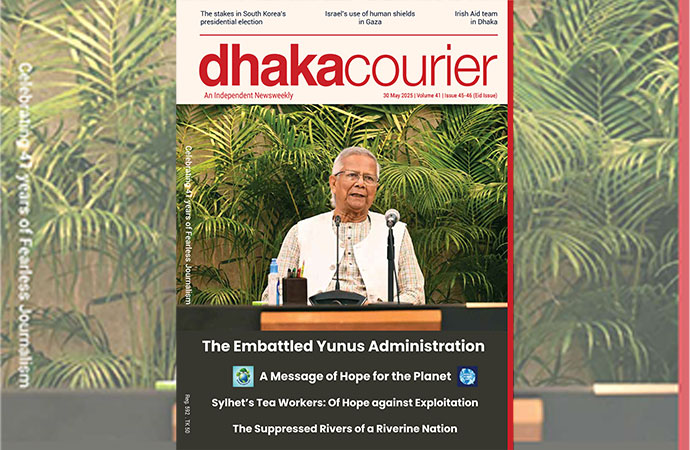
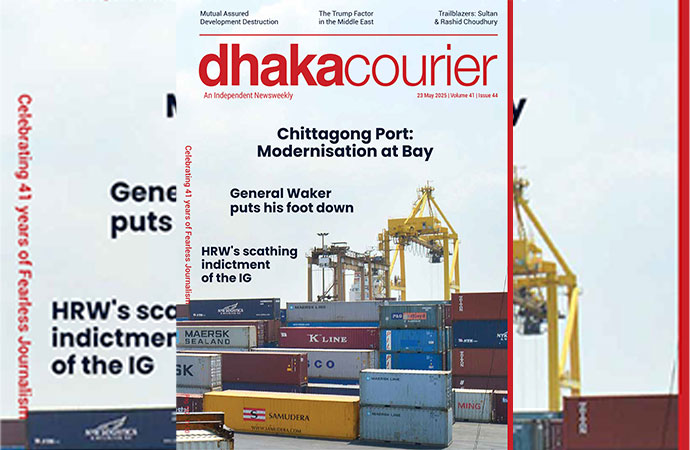
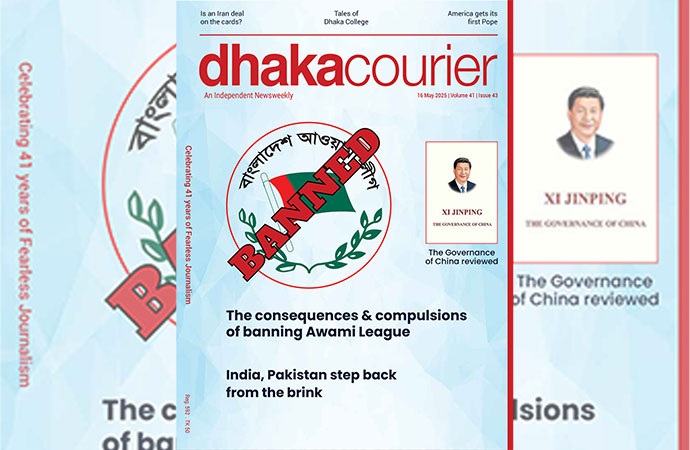
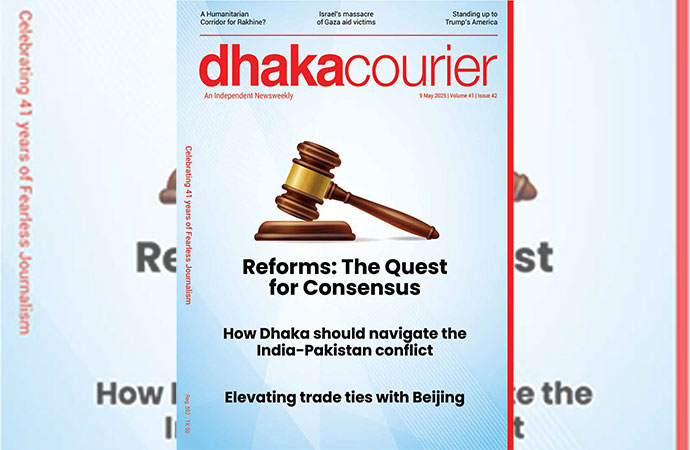
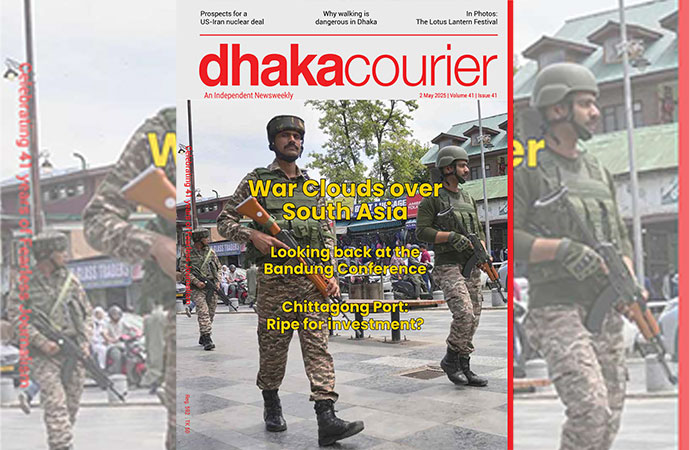
Leave a Comment
Recent Posts
Rare folk treasures at risk in ...
Amid the quiet greenery of Ulipur upazila in Kurigram, a humble tin-ro ...
Enayetullah Khan to represent ...
Enayetullah Khan, Editor-in-Chief of United News of Bangladesh (UNB), ...
The tragedy in Ahmedabad touches us all
Asset recovery a key focus; breakthroughs from talks ..
'It'll inspire youths to build Bangladesh they dream ..
UK envoy Sarah Cooke happy with Yunus’ visit to Brit ..